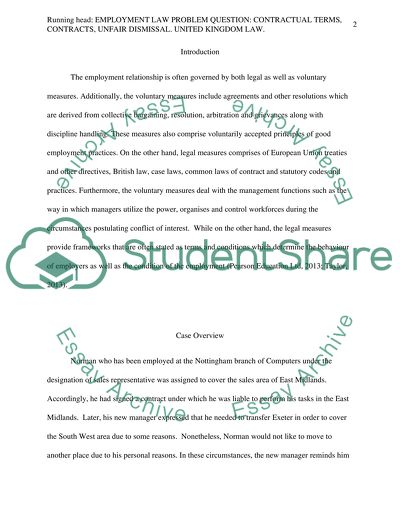Cite this document
(“Employment Law Problem Question: Contractual Terms, Contracts, Unfair Assignment”, n.d.)
Retrieved from https://studentshare.org/law/1471005-employment-law-problem-question-contractual-terms
Retrieved from https://studentshare.org/law/1471005-employment-law-problem-question-contractual-terms
(Employment Law Problem Question: Contractual Terms, Contracts, Unfair Assignment)
https://studentshare.org/law/1471005-employment-law-problem-question-contractual-terms.
https://studentshare.org/law/1471005-employment-law-problem-question-contractual-terms.
“Employment Law Problem Question: Contractual Terms, Contracts, Unfair Assignment”, n.d. https://studentshare.org/law/1471005-employment-law-problem-question-contractual-terms.


